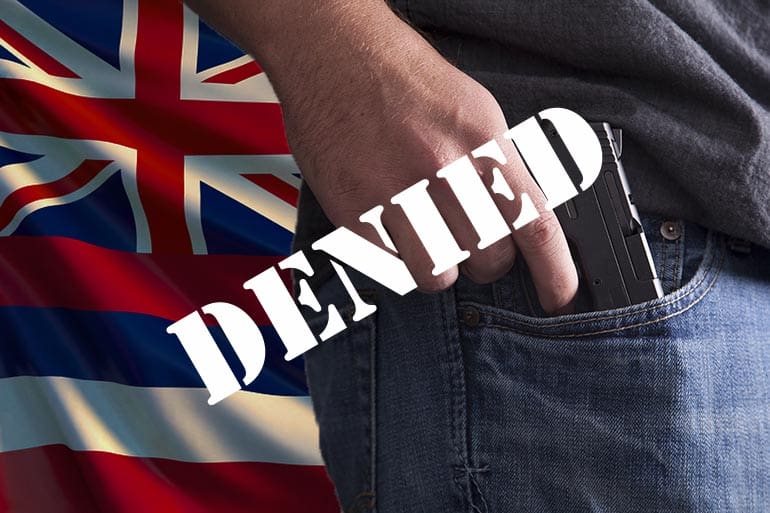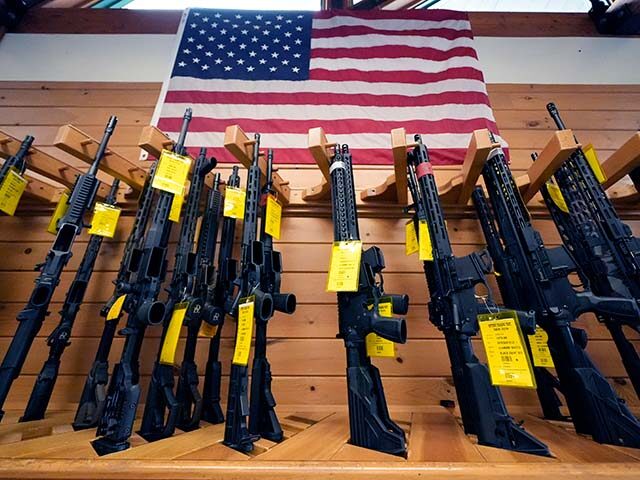 A brief filed by the federal government in the 5th Circuit Court of Appeals in a case involving the constitutionality of banning machine guns has one pro-gun rights group seeing red.
A brief filed by the federal government in the 5th Circuit Court of Appeals in a case involving the constitutionality of banning machine guns has one pro-gun rights group seeing red.The case United States v. Justin Bryce Brown revolves around the federal government charging Justice Bryce Brown with knowingly possessing a machine gun in violation of federal law. Brown’s attorney argued that under the landmark 2022 decision in New York State Rifle & Pistol Association v. Bruen, the statute was unconstitutional as applied to him.
A district court dismissed the charge against Brown in January, holding that the ban violated the Second Amendment as it applied to him. The government then appealed to the Fifth Circuit.
A brief filed April 24 by Patrick Lemon, acting U.S. Attorney for the Southern District of Mississippi, argued that “machine guns are not the kind of arms protected by the Second Amendment,” and that America’s “history of regulating dangerous and unusual weapons confirms [the federal machine gun ban’s] constitutionality.” The brief drew quick condemnation from the Firearms Policy Coalition (FPC), which called the brief both “horribly flawed” and “insanely offensive.”
One portion of the brief that really set the gun-rights group off was when Lemon cited The Trace, a rabidly anti-gun instrument of Michael Bloomberg’s so-called Everytown for Gun Safety, as his source of information.
“Acting U.S. Attorney Lemon’s horrifically flawed brief is unprincipled and an incredible affront to the People and our constitutionally protected rights,” Brandon Combs, FPC president, said in a press release about the brief. “Not only does this lemon of a brief expressly advance anti-liberty arguments, it went so far as to cite the radically anti-Second Amendment Everytown propaganda publication, The Trace, in support of its position. This brief could not be less consistent with President Trump’s ‘Protecting Second Amendment Rights’ executive order.”
Since President Trump’s executive order on protecting the Second Amendment does matter—or at least it should to Lemon—Combs said the brief should prompt the president and Attorney General Pam Bondi to look into Lemon’s ability to respect the executive order. After all, the U.S. Attorney filed the poorly thought-out brief on behalf of the federal government, which Trump heads.
“This insanely offensive brief should never have been filed in any court, let alone at the Fifth Circuit,” Combs continued. “It should be immediately withdrawn and thrown into the trash, along with Mr. Lemon’s ability to make these filings in the future.”
Combs added that the Lemon filing is a prime example of why the organization has been asking President Trump to appoint a competent Second Amendment czar to coordinate the administration’s agenda across the government and with stakeholders in Second Amendment litigation.
“Our rights must be protected at all costs and the American people are counting on President Trump and Attorney General Bondi to fulfill their promise to do just that,” he concluded.
 Facing dire consequences if anti-gun legislation made it through the legislature and went to gun-hating Gov. Michelle Lujan Grisham’s desk for consideration, New Mexico gun owners dodged a bullet recently when two bad measures didn’t survive the legislative process.
Facing dire consequences if anti-gun legislation made it through the legislature and went to gun-hating Gov. Michelle Lujan Grisham’s desk for consideration, New Mexico gun owners dodged a bullet recently when two bad measures didn’t survive the legislative process.








 In with a rat-tat-tat, out with barely a whimper. That describes the great lawsuit filed by Chicago not even four months ago. The suit, originally filed in state court was transferred to federal court. And with a very short, two sentence filing, Chicago voluntarily withdrew the lawsuit from federal court.
In with a rat-tat-tat, out with barely a whimper. That describes the great lawsuit filed by Chicago not even four months ago. The suit, originally filed in state court was transferred to federal court. And with a very short, two sentence filing, Chicago voluntarily withdrew the lawsuit from federal court.